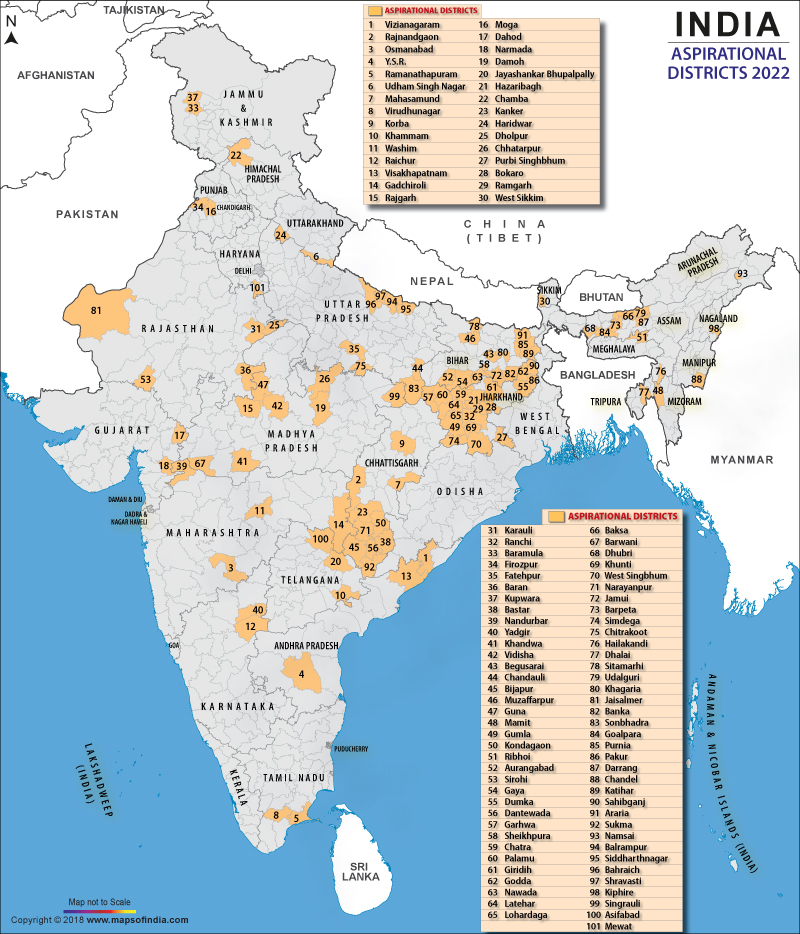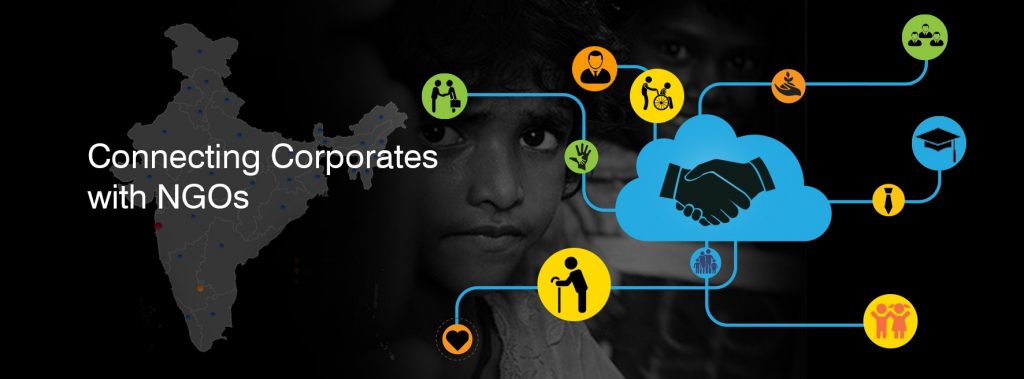

India is the first country in the world to impose a statutory obligation of CSR for corporations meeting certain criteria. This provision makes India the only country that makes both the spending and reporting of CSR obligations mandatory. Furthermore, the Companies Act and subsequent amendments have expanded and clarified activities for which the two per cent funding can be used. The Government of India has made it clear that CSR spending is not charity or mere donations without any strategic benefits. There has been a concerted effort to define broad areas (Schedule VII of the Companies Act 2013) under which the funding can be channelled thereby, visibly and positively impacting society. Moreover, there has been a conscious attempt to keep the CSR legislation aligned with India’s commitment to the United Nations Sustainable Development Goals (UN-SDGs). Schedule VII of the Companies Act 2013 defines broad areas of intervention intended to be interpreted liberally, with the eventual focus being on ensuring sustainable development of the country.
A significant amount of funding goes to higher industrialised States like Maharashtra, Karnataka, Gujarat and Tamil Nadu, who have received more than 30 per cent of the total CSR spend during 2015. The concentration of spending in these States mean that States such as Jharkhand, Bihar, Chhattisgarh, Madhya Pradesh and Uttar Pradesh, which account for more than 55 per cent of the aspirational districts (States with poor socio-economic indicators), receive only 9 per cent of the total expenditure towards CSR. Apart from Uttar Pradesh (#9), no State from the ones listed above features in the top 10 State beneficiaries. For CSR to be truly effective, this imbalance would have to be corrected.
Challenges for CSR Spending
One of the challenges faced by both Corporates who want to spend their CSR funds is the inability to find suitable NGOs for implementation and implementing NGOs who cannot find the right type of funder for their projects. More often than not, Corporates continue with the same NGO to be on the safer side.
Review of CSR Spending by Corporate
 Based on an analysis of the CSR spending by Corporates during the last few years, the top three domains receiving maximum funding are education, health and rural development. Another area receiving significant funding is environmental sustainability. A significant amount of funding goes to higher industrialised States like Maharashtra, Karnataka, Gujarat and Tamil Nadu, who have received more than 30 per cent of the total CSR spend during 2015. This could be for multiple reasons, for example, the company is looking to have a positive social impact in their areas of operation, as well as deeper connects with social impact organisations operating in the same area. Further, CSR expenditure modes where almost 44 per cent of all spending is done by the companies themselves or via trusts/societies/Section 8 companies set up by them. Another 43 per cent is done through various implementation partners. However, the
Based on an analysis of the CSR spending by Corporates during the last few years, the top three domains receiving maximum funding are education, health and rural development. Another area receiving significant funding is environmental sustainability. A significant amount of funding goes to higher industrialised States like Maharashtra, Karnataka, Gujarat and Tamil Nadu, who have received more than 30 per cent of the total CSR spend during 2015. This could be for multiple reasons, for example, the company is looking to have a positive social impact in their areas of operation, as well as deeper connects with social impact organisations operating in the same area. Further, CSR expenditure modes where almost 44 per cent of all spending is done by the companies themselves or via trusts/societies/Section 8 companies set up by them. Another 43 per cent is done through various implementation partners. However, the  concentration of spending in these States mean that States such as Jharkhand, Bihar, Chhattisgarh, Madhya Pradesh and Uttar Pradesh, which account for more than 55 per cent of the aspirational districts (States with poor socio-economic indicators), receive only 9 per cent of the total expenditure towards CSR. Apart from Uttar Pradesh (#9), no State from the ones listed above features in the top 10 State beneficiaries. For CSR to be truly effective, this imbalance would have to be corrected. Invest India’s ‘Corporate Social Responsibility Projects Repository’ on the India Investment Grid (IIG) is an effort in this direction. It is hoped that by giving a platform to all States to list potential CSR projects at the central level, companies and their implementation partners would be able to assess where their CSR funds would be most impactful across India. Currently, the portal has over 650+ projects across eight diverse domains.
concentration of spending in these States mean that States such as Jharkhand, Bihar, Chhattisgarh, Madhya Pradesh and Uttar Pradesh, which account for more than 55 per cent of the aspirational districts (States with poor socio-economic indicators), receive only 9 per cent of the total expenditure towards CSR. Apart from Uttar Pradesh (#9), no State from the ones listed above features in the top 10 State beneficiaries. For CSR to be truly effective, this imbalance would have to be corrected. Invest India’s ‘Corporate Social Responsibility Projects Repository’ on the India Investment Grid (IIG) is an effort in this direction. It is hoped that by giving a platform to all States to list potential CSR projects at the central level, companies and their implementation partners would be able to assess where their CSR funds would be most impactful across India. Currently, the portal has over 650+ projects across eight diverse domains.
Regional Distribution of Expenditure under CSR Funds
In 2018, as per the Ministry of Rural Development, India has 718 districts, of which, approximately 16 per cent (115 districts) were aspirational districts as per NITI Aayog. Jharkhand, Bihar, Chattisgarh, Madhya Pradesh and Uttar Pradesh account for more than 55 per cent of the aspirational districts’ concentration across India, yet received only 9 per cent of the total expenditure towards CSR. States with a relatively higher level of development have the highest concentration of CSR-led activities and, they are increasing over the years. Maharashtra, Karnataka, Andhra Pradesh, Gujarat, Tamil Nadu and Delhi received 40 per cent of the total CSR expenditure from 2014-15 to 2017-18, even though they account for only 11 per cent of the total number of aspirational districts.

This bias exists not only towards relatively well-developed States but also within a State itself. An analysis of data for FY 2016-17 shows that even in Maharashtra, which received the largest volume of funding, certain districts such as Pune and Mumbai (suburban) received the highest amount in CSR funding (more than INR 200 Crore each), while those which were farther away from industrialised areas, such as Hingoli, Buldhana and Parbhani received less than INR 1 Crore of funding.
CSR and SDGs together have tremendous potential to develop an interconnected model for sustainable growth. Many companies are aligning their CSR focus areas according to SDGs to meet their CSR mandate. For example, when an organisation defines its CSR focus area on enhancing livelihoods through skill development training of women and youth, it contributes to various SDGs such as creating means to end poverty, zero hunger, provide quality education, promote gender equality and economic growth.
Activities Funded under CSR Activity
Activities that are specified in Schedule VII as the activities are the activities taken up by companies in their CSR policies are as indicated below:
- Promotion of Education
- Environmental Stability
- Social Business Projects
- Eradication of Hunger and Poverty
- Employment Enhancing Vocational Skills
- Gender Equality and Women Empowerment
- Combating HIV/AIDS and other diseases
- Reducing Child Mortality and Improving Maternal Health
- Contribution to Prime Minister’s Relief Fund and other funds
Based on data from the Ministry of Corporate Affairs, Government of India, it is observed that out of the total expenditure incurred on Schedule VII areas, projects related to education and health have received the maximum CSR funds as indicated in the table below. The cumulative figure from 2014-15 to 2017-18 for total expenditure incurred on projects related to education is INR 15,612.20 Crore, followed by INR 9,020.47 Crore spent on projects related to healthcare.
|
Sl. No. |
Sector |
Proportion of Expenditure (%) |
|
1 |
Education, Differently Abled & Livelihood |
37 |
|
2 |
Health, Eradicating Hunger, Poverty and Malnutrition, Safe Drinking Water & Sanitation |
29 |
|
3 |
Rural Development |
10 |
|
4 |
Environment, Animal Welfare, Conservation of Resources |
9 |
|
5 |
Gender Equality, Women Empowerment, Old Age Homes, Reducing Inequalities |
3 |
|
6 |
Heritage, Art and Culture |
2 |
|
7 |
Encouraging Sports |
1 |
|
8 |
Prime Ministers National Relief Funds |
4 |
|
9 |
Slum Area Development |
0 |
|
10 |
Technology Incubators & Benefits to Armed Forces |
0 |
Source: Report of the High-Level Committee on Corporate Social Responsibility
It may be seen from the above table that CSR funds can be also contributed to the PM National Relief Fund, Swachh Bharat Kosh, Clean Ganga Fund and any other funds set up by the Government of India for socio-economic development. Contributions to these funds have been in a small proportion (approx. 5.6 per cent) of the total CSR expenditures for the years 2014-15 to 2017-18. However, Slum Area Development, Technology Incubator, and Benefits to Armed Forces did not receive any funds.
CSR and Sustainable Development Goals
 SDGs are a collection of 17 global goals designed to be a blueprint to achieve a better and more sustainable future for all. These 17 goals consist of 169 targets which must be achieved by 2030. India played a prominent role in the formulation of the United Nations Sustainable Development Agenda 2030, and much of the country’s National Development Agenda is linked to achieving Sustainable Development Goals (SDGs). India ranks 115 out of 162 on the SDG Index. This slow progress calls for immediate action through collaboration between the corporate sector, civil society organisations and the Government. Corporates are seen as the key drivers of SDGs as they can apply their creativity and innovation to achieve sustainable development and facilitate the implementation of these goals. CSR and SDGs together have tremendous potential to develop an interconnected model for sustainable growth. Many companies are aligning their CSR focus areas according to SDGs to meet their CSR mandate. For example, when an organisation defines its CSR focus area on enhancing livelihoods through skill development training of women and youth, it contributes to various SDGs such as creating means to end poverty, zero hunger, provide quality education, promote gender equality and economic growth.
SDGs are a collection of 17 global goals designed to be a blueprint to achieve a better and more sustainable future for all. These 17 goals consist of 169 targets which must be achieved by 2030. India played a prominent role in the formulation of the United Nations Sustainable Development Agenda 2030, and much of the country’s National Development Agenda is linked to achieving Sustainable Development Goals (SDGs). India ranks 115 out of 162 on the SDG Index. This slow progress calls for immediate action through collaboration between the corporate sector, civil society organisations and the Government. Corporates are seen as the key drivers of SDGs as they can apply their creativity and innovation to achieve sustainable development and facilitate the implementation of these goals. CSR and SDGs together have tremendous potential to develop an interconnected model for sustainable growth. Many companies are aligning their CSR focus areas according to SDGs to meet their CSR mandate. For example, when an organisation defines its CSR focus area on enhancing livelihoods through skill development training of women and youth, it contributes to various SDGs such as creating means to end poverty, zero hunger, provide quality education, promote gender equality and economic growth.
The BSE Sammaan CSR platform helps Corporates find validated programmes/projects through a database of over 900+ projects across India under the ambit of Schedule VII of the Companies Act 2013. It also helps them find NGOs that are credible and accountable. However, this platform lacks certain facilities like geographical location, projects, etc. It is, therefore, envisioned that a CSR exchange is designed, which is app-based, where both Corporates/CSR Foundations, as well as NGOs/social enterprises (both for-profit and not-for-profit entities), can register, provide information about themselves, their strengths, past projects implemented with names of funders and the operational area to enable Corporates to find the right NGO/implementing agency for funding under CSR projects, and for NGOs/implementing agency to find funding for any development project they plan to implement.
Contribution by the Corporate Sector
While a substantial proportion of companies spend their CSR funds directly, NGOs are becoming the most popular channel for others. This upward trend can be attributed to implementing agencies being a more suitable model for the companies to execute CSR projects due to their presence in the target areas, local connections and knowledge-based experience in executing social projects which a company may typically lack in.
CSR for Technology Incubators
In September 2019, the Government expanded the scope of CSR to spur the Research & Development (R&D) and innovation ecosystem in the country. Schedule VII of the Companies Act now recognises any contribution to incubators funded by the Central or State Government or any agency or Public Sector Undertaking of Central or State Government, and, making contributions to public-funded Universities, IITs, national laboratories, and autonomous bodies (established under the auspices of ICAR, ICMR, CSIR, DAE, DRDO, DST) engaged in conducting research in science, technology, engineering and medicine aimed at promoting SDGs) as falling within the ambit of CSR. It is important to appreciate that the amendment focuses on both the pillars of the innovation ecosystem – startups, by funding support to incubators and research across science, technology, engineering and medicine. Even though funding to technology incubators, albeit under a narrower definition, has been allowed for a while, the sector has not seen significant funding. It has only received less than 0.2 per cent of total CSR spending from 2014-15 to 2017-18. This was due to ambiguity around permitted activities and institutions and a lack of information about projects requiring funding across the country. To help solve the problem of information asymmetry, the CSR repository on IIG has a dedicated section for projects from technology incubators.
The Way Forward
The need now is to address the challenges identified in CSR spending faced by Corporates who want to spend their CSR funds but are unable to find suitable NGOs for implementation and for implementing NGOs who are unable to find the right type of funder for their projects.
 The closest solution that addresses this challenge is The BSE Sammaan, an initiative of BSE, CII and IICA under the MCA, GOI, founded in 2015. The BSE Sammaan CSR platform helps Corporates find validated programmes/projects through a database of over 900+ projects across India under the ambit of Schedule VII of the Companies Act 2013. It also helps them find NGOs that are credible and accountable. I understand that BSE Sammaan was handed over to MCA in 2021. However, this platform lacks certain facilities like geographical location, projects, etc. It is, therefore, envisioned that a CSR exchange is designed, which is app-based, where both Corporates/CSR Foundations, as well as NGOs/social enterprises (both for-profit and not-for-profit entities), can register, provide information about themselves, their strengths, past projects implemented with names of funders and the operational area to enable Corporates to find the right NGO/implementing agency for funding under CSR projects, and for NGOs/implementing agency to find funding for any development project they plan to implement.
The closest solution that addresses this challenge is The BSE Sammaan, an initiative of BSE, CII and IICA under the MCA, GOI, founded in 2015. The BSE Sammaan CSR platform helps Corporates find validated programmes/projects through a database of over 900+ projects across India under the ambit of Schedule VII of the Companies Act 2013. It also helps them find NGOs that are credible and accountable. I understand that BSE Sammaan was handed over to MCA in 2021. However, this platform lacks certain facilities like geographical location, projects, etc. It is, therefore, envisioned that a CSR exchange is designed, which is app-based, where both Corporates/CSR Foundations, as well as NGOs/social enterprises (both for-profit and not-for-profit entities), can register, provide information about themselves, their strengths, past projects implemented with names of funders and the operational area to enable Corporates to find the right NGO/implementing agency for funding under CSR projects, and for NGOs/implementing agency to find funding for any development project they plan to implement.
Prof. M.V. Ashok is a Senior Adviser of national-level NGO BAIF, based in Pune. He is a retired CGM of NABARD. He had served as Adjunct Professor for School of Agribusiness Management, MIT World Peace University, Pune, and as a Visiting Professor at the College of Post Graduate Studies Shillong, with the Central Agricultural University North East. He was an Adviser to Aditya Birla Group as well as Dr. Reddy’s Foundation and several NGOs and FPOs promoted by them. He is a mentor to about six agritech start-ups. He is the author of a recent book on ‘Emerging Trends in Agricultural Marketing in India’ based on his long years of experience with farmers and the recent association with Farmer Producer Organisations and agritech start-ups.

